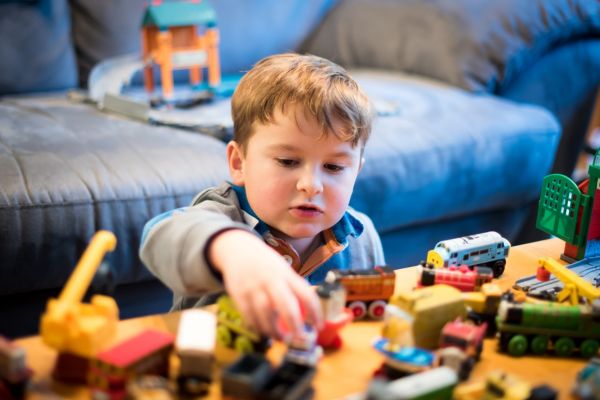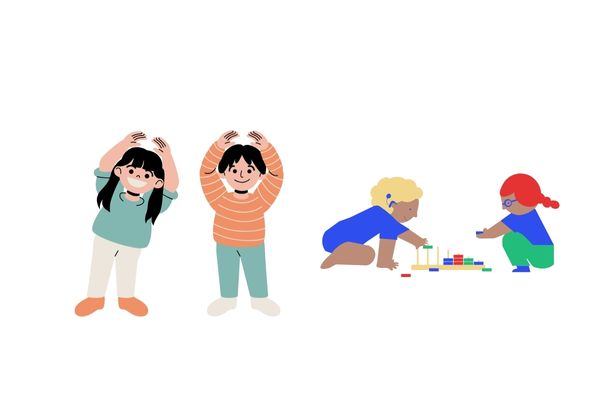The toddler years are a whirlwind of growth, discovery, and boundless energy. As your little one navigates this exciting phase, mastering gross motor skills becomes crucial. These skills involve the use of large muscle groups, allowing toddlers to explore their world, develop independence, and build a strong foundation for future physical development.
What are Gross Motor Skills?
Gross Motor Skills for Toddlers encompass a wide range of movements that involve the large muscles of the arms, legs, torso, and core. These skills are essential for everyday activities such as walking, running, jumping, climbing, throwing, and catching. They also play a vital role in developing balance, coordination, and spatial awareness, paving the way for more complex physical activities later in life.
Why are Gross Motor Skills Important for Toddlers?

- Exploration and Independence: Mastering gross motor skills empowers toddlers to explore their surroundings independently. They can climb stairs, reach for toys, walk to the park, and engage in playful activities without relying solely on adults.
- Physical Development: Gross motor skills lay the groundwork for future physical activities and sports participation. They help develop strong muscles, improve coordination and balance, and enhance cardiovascular health.
- Cognitive Development: Research suggests a link between gross motor skills development and cognitive function in toddlers. Physical activity stimulates the brain, promoting problem-solving skills, spatial awareness, and body image.
- Social Development: Playgrounds, parks, and other environments where toddlers can practice gross motor skills often foster social interaction. They can learn to take turns, cooperate, and share space with other children.
- Self-Esteem: Mastering new skills, especially physical ones, boosts confidence and self-esteem in toddlers. They feel proud of their accomplishments and motivated to explore their full potential.
Stages of Gross Motor Skill Development:
Every child develops at their own pace, but understanding the typical stages can offer helpful guidance:
12-18 Months:
- Walking independently
- Climbing stairs with assistance
- Kicking a ball
- Throwing an object overhand
18-24 Months:
- Running
- Jumping in place
- Climbing without assistance
- Tricycling (with practice)
2-3 Years:
- Hopping on one foot
- Skipping
- Catching a large ball
- Throwing a ball overhead
Fun Activities to Nurture Gross Motor Skills

Indoor Activities:
- Obstacle Course: Create a safe obstacle course using pillows, blankets, chairs, and tunnels.
- Dance Party: Put on some music and encourage your toddler to move their body freely.
- Simon Says: Play a modified version of “Simon Says” with instructions that involve jumping, crawling, hopping, and other gross motor movements.
- Building Blocks: Encourage your child to build tall towers and structures, which helps with balance and coordination.
- Animal Walks: Mimic animal movements like crawling like a bear, hopping like a frog, or walking like a crab.
Outdoor Activities:
- Playground Play: Playgrounds offer diverse opportunities for climbing, sliding, swinging, and exploring.
- Ball Games: Play catch, kick a ball, or roll a ball back and forth.
- Nature Walks: Explore parks, forests, or your backyard, encouraging safe climbing, running, and jumping.
- Tricycle or Scooter Rides: Encourage safe riding on appropriate surfaces.
- Water Play: Splashing, pouring, and running through sprinklers can be fun and promote gross motor skills.
Tips for Encouraging Gross Motor Skill Development
- Make it Playful: Focus on creating a fun and engaging environment where your child feels comfortable and motivated to explore.
- Get Involved: Participate in activities alongside your child, offering gentle guidance and encouragement.
- Celebrate Milestones: Acknowledge and celebrate your child’s achievements, no matter how small, to boost their confidence.
- Be Patient: Every child develops at their own pace. Avoid comparing your child to others and focus on their progress.
- Seek Guidance: If you have any concerns about your child’s gross motor development, consult with your pediatrician or a physical therapist.
Final Words
Gross motor skills development is a journey, not a destination. By providing opportunities for safe exploration, encouraging active play, and celebrating their efforts, you can help your toddler build a strong foundation for a healthy and active future.





